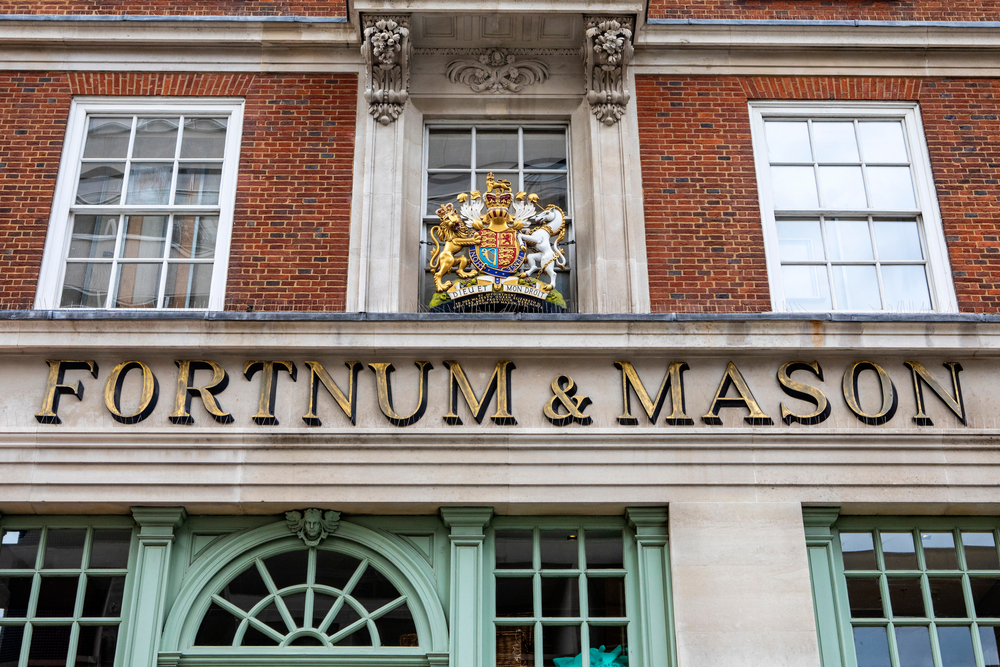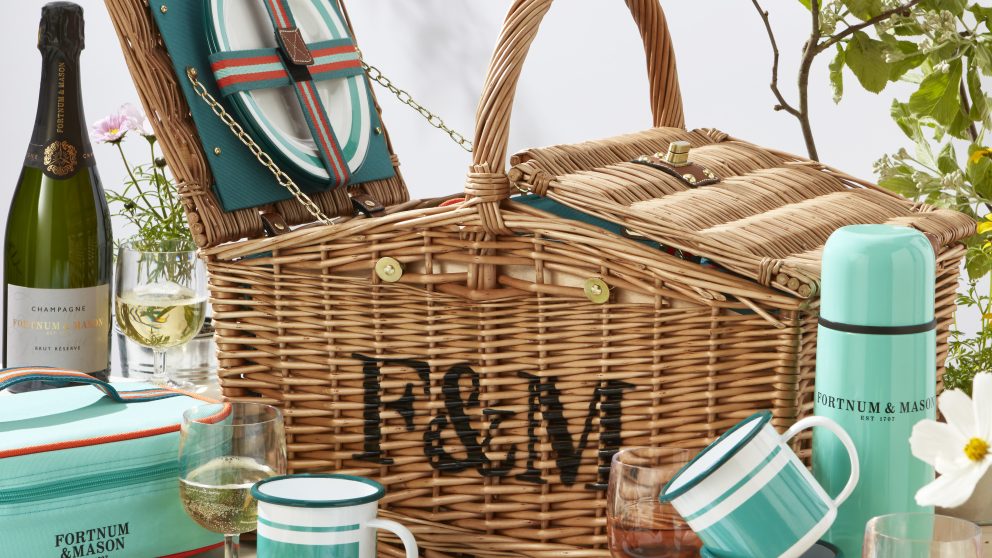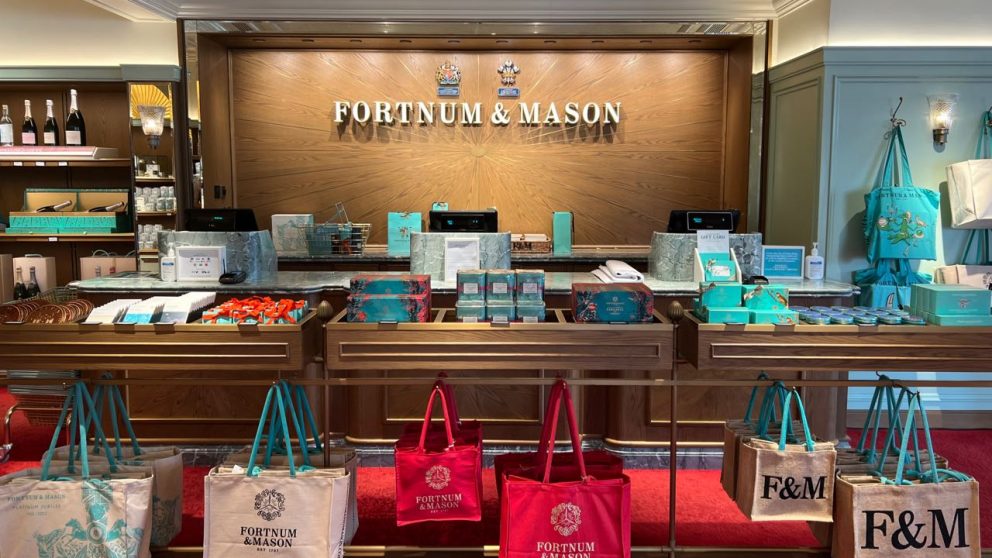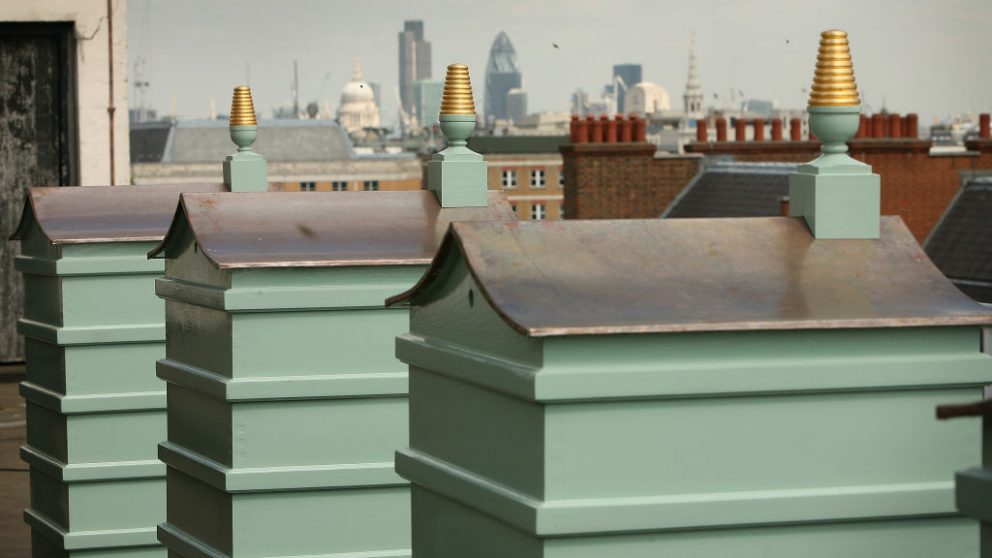
Fewer Chinese tourists visited Fortnum's Piccadilly store during the pandemic. promting a digital pivot. Photo credit: Shutterstock
Where can a 315-year-old purveyor of fine tea, biscuits and luxury hampers go for a masterclass in serving customers digitally?
For Fortnum & Mason, the answer is China, the largest consumer market in the world.
The storied British retailer accelerated its digital transformation through the coronavirus pandemic as the number of tourists visiting its flagship Piccadilly store dwindled.
A key leg in its digital journey is its recent launch on Alibaba Group’s Tmall Global, the largest cross-border marketplace in China, which counts 1.3 billion consumers in its ecosystem.
“There’s an awful lot to learn from China about the way consumers interact digitally,” Fortnum’s CEO Tom Athron told Alizila. “We’re just beginning to uncover the digital opportunity.”
The family-owned business is gleaning insights from China, such as how to swiftly spot emerging shopping trends and adapt it range of products to suit local tastes.
“Expansion in China is a lynchpin in our global journey,” said Carmen Chiu, Fortnum’s Regional Managing director for the Asia-Pacific region, who foresees Fortnum’s pop-ups across China where there is strong demand online.
Chinese consumers are willing to pay more for sustainable products, which chimes with Fortnum’s efforts to be greener and more inclusive.
Globally, online sales contribute 30% to 40% of Fortnum’s sales these days, up from about 10% two years ago, according to Athron. He attributes this partly to the company’s revamped website unveiled in August 2020 and investment in data driven-decisions.
“My guess is that in two- or three-years’ time, only 30% of our sales will be driven out of Piccadilly and 70% driven either internationally or online,” he added.
Luxury For All
As a long-standing supplier to the British royal family, Fortnum’s knows a little bit about luxury tastes.
“Luxury is emotive,” it means you have selected the highest quality products to share with your friends, said Fortnum’s Chiu, who oversaw the opening of Fortnum’s Hong Kong store and restaurant in 2019.
Fortnum’s sees an opportunity to popularize its luxury shopping experience in China because the number of households in the upper-middle income and above bracket will grow by at least 70% over the coming decade.
As Chinese consumers make lifestyle upgrades, they are turning further afield for top-quality grocery items. Last year, China bought £802.8 million ($978 million) worth of British food and drink imports, up 12.5% year-on-year, according to the China-Britain Business Council, a trade association.
The conundrum for many luxury brands as they contemplate making the digital leap is how to maintain an air of exclusivity in an online world.
“It’s really hard,” said Athron. He eschews single product listings and wants a controlled environment that feels and looks like Fortnum’s.
“That’s what was attractive about Tmall for example, our ability to host our own shop so that people felt they were coming to Fortnum’s online,” the British retail executive said.



Test & Learn
Fortnum’s store on Tmall Global, which went live on June 18, is a place where it can test and learn about its audience in China and which products resonate locally.
The family-owned business is also taking advantage of the latest marketing tools, gearing up to livestream demonstrations from its chefs, tearistas, sommeliers and other events in its Piccadilly store, direct to Chinese consumers via Alibaba’s Taobao Live platform.
Digital has also ushered a younger, foodie crowd into Fortnum’s.
“We’re particularly attractive to people who love food and drink,” said Athron. “Historically, luxury really stood for the sort of mystique of formidableness, which, to my mind, is gross exclusivity by another name,” said Athron.
In China, Fortnum & Mason predominantly targets an audience of 25 to 35-year-olds, mainly female professionals.
“We know already there is huge potential for us to expand in China,” said Chiu and, “Choosing the right partner says something about the brand.”
Going Local
Chinese consumers have long been a mainstay of luxury brands around the world. However, since the onset of the pandemic, it has been difficult for Chinese consumers to travel overseas.
Like other high-end retailers, Fortnum’s is building a digital bridge to reach Chinese consumers in their homes. That means adapting to local tastes and quickly responding to emerging trends.
Reading the tea leaves, the signs look good. Multi-category brands are trending well on Tmall, especially in the gifting and wine & spirits departments.
“Fortnum’s products fit well with the consumer trend of slowing down, spending time with family and friends, while enjoying quality food,” said Tmall Global’s head of business development for health & wellness, and food for the UK and Nordics, Zarina Kanji.
Roughly half of Asian consumers are health-conscious when they shop, far more than in Europe at 27% and the US at 31%, according to a recent survey by Bain & Co.. Fortnum’s sparkling tea, infused with botanicals, caters to that trend. Party goers are increasingly imbibing the zero-alcohol drink instead of supping champagne. The sparkling tea is a top seller at Fortnum’s Hong Kong store.
“We’re a British brand, but we have to be locally relevant,” said Fortnum’s Chiu, who is based in the Chinese territory.
Jumping on another trend, glamping has taken off in Chinese cities as holiday-makers stay closer to home during the pandemic. Fortnum’s offers campers a glamorous array of picnic products in its Tmall Global store, from high-end wicker hampers to biscuits.
“The brand is strong enough to be a little bit unexpected and push the boundaries of what luxury food is all about,” said Athron, who joined the retailer in December 2020.



Stately Sustainability
The pandemic has prompted a swathe of luxury brands to reassess their impact on the planet.
Environmental responsibility lies at the heart of Fortnum’s humble beginnings in 1707 when Queen Anne’s footman William Fortnum came up with the idea of taking used candles from St James’s palace, re-melting and selling them.
Its Piccadilly store is becoming greener, from the bee hives on the roof to the more energy-efficient boilers in the basement. It is also sourcing products locally as much as possible, such as its hand-made English chocolates from a family business in Brighton.
“Our customers are asking us many more questions about whether the products are sourced locally and if the manufacturing process is impacting the environment,” said Athron.
Fortnum’s removed the equivalent of a blue whale’s weight in plastic from its stores and products in the fiscal year ending July 2021 and was the first UK retailer to make its tea bags fully compostable. Customers can take home Fortnum’s products in either paper bags or one of its re-usable Bags for Life.
Halfway around the world, this waste not, want not mentality will serve Fortnum’s well as it looks to attract Chinese consumers, 72% of whom said they try to buy from environmentally responsible companies versus 54% globally, according to a survey by consultancy PWC.
The centuries-old tea producer brings “sustainable thinking into every single decision that we make,” Athron explained.
That approach helped it secure two coveted Royal Warrants, which have long been considered recognition of exceptional quality and today are Kitemarks – or badges – demonstrating a commitment to environmental and social issues.



Rebound
After lockdowns ended in the UK, Fortnum’s found that many consumers continued to shop digitally.
Ringing up more sales, the 18th-century Piccadilly department store, complete with plush carpeting, eau de nil-coloured gift boxes and dozens of chandeliers, has welcomed back American and Middle Eastern tourists for afternoon tea as borders have gradually reopened.
Athron believes that Fortnum’s digital push into China will raise the brand’s profile in the world’s second-largest economy, ready for when Chinese tourism resumes.
This broad-based rebound in sales, both in physical stores and online, bodes well for Fortnum’s return to profitability.
“Demand online has not diminished. For our latest full financial year, we’ll record a record level of sales,” said Athron.




